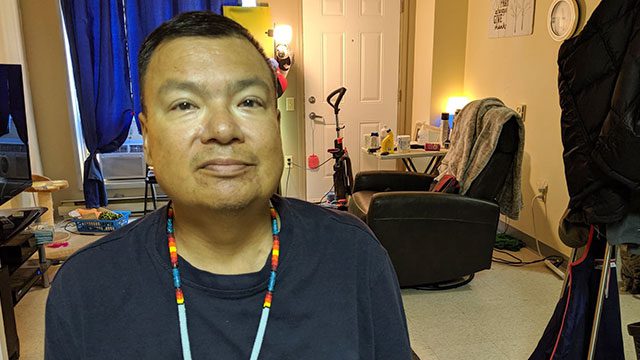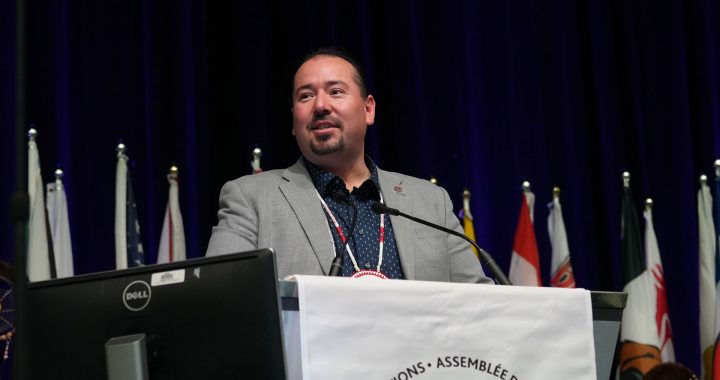A new report released this month shows the health gap between First Nations people and all other Manitobans has widened over the past 15 years.
Early death rates are three times higher for First Nations people, according to The Health Status of and Access to Healthcare by Registered First Nation Peoples in Manitoba, a report released by the First Nations Health and Social Secretariat of Manitoba and the Manitoba Centre for Health Policy.
People navigating the system are calling for a more collaborative approach to change these statistics.
Vanessa Tait’s father Kenneth was diagnosed with kidney disease in November 2017.
(Vanessa Tait with her father Kenneth in the hospital. Photo courtesy: Vanessa Tait)
For the past year, the 62-year -old has been living in a Winnipeg hotel so he can receive dialysis treatment.
“In my father’s patient journey, I’ve seen the inadequate healthcare system, for instance, it’s primary healthcare. We don’t have a lot of services…for our First Nation communities,” Tait told APTN News.
The family is from O-Pipon-Na-Piwin Cree Nation, located approximately 1,000 km north of Winnipeg.
The community only has a nursing station so patients must travel 12 hours by car to access a number of healthcare options in Winnipeg.
The report lists a myriad of reasons relating to the higher rates of early deaths for First Nations people including a lack of healthcare close to home.
Tait says the report and her own family’s experiences show the healthcare system is set up to fail First Nations people.
“When you father tells you, ‘I just want to die because I miss home,’ that really shows you how First Nations patients are treated…have to leave their homes and being told they have to stay in a hotel room where even the quality of food is not appropriate with what the dietician tells you,” she said.
The report states the gap has worsened significantly since 2002.
The life expectancy of First Nations women is 72 years compared to 83 years for other female Manitobans, while First Nations men is 68 years compared to 79 years for other male Manitobans.
George Lammers, 52, has been on dialysis for nine years.
He spends four nights a week receiving treatment at a nearby hospital. He’s lived in Winnipeg his whole life but recently moved into a complex for people receiving dialysis treatment.
(George Lammers has been on dialysis for nine years. Photo: Brittany Hobson/APTN)
He slipped on a patch of ice nearly two years ago and after some complications due to diabetes doctors had to amputate part of his leg.
“The healthcare system isn’t what you think it is. You think you’re going to go and stay in the hospital and be treated with respect but meanwhile the nurses are too busy handing out medications to people,” said Lammers.
Lammers says he’s experienced ‘degrading’ treatment from nurses and doctors.
He believes part of it is because he’s First Nations.
“I call it subtle racism. They don’t actually say it to you, it’s by their actions. How they talk to you,” said Lammers.
It’s not always bad, he says, but cuts to the healthcare industry by the Conservative government have made it worse.
Lammers has also been on the kidney transplant list for almost a decade but says he’s never been given a reason for the delay.
A spokesperson for Transplant Manitoba wrote, “as healthcare providers we cannot speak to specific individual cases,” in an email to APTN.
They did confirm there are approximately 200 Manitobans waiting for a kidney transplant, and delays could be related to blood type or a patient’s overall health.
For Tait, she would like to see the provincial government work with First Nations to create a healthcare system where communities have power to control things.
“Having adequate primary healthcare services in our community, run by our community and actually developed by our community,” she said.
“And then infusing dollars to have our own people go into the health profession, whether it be nursing or whether it be a doctor.”











